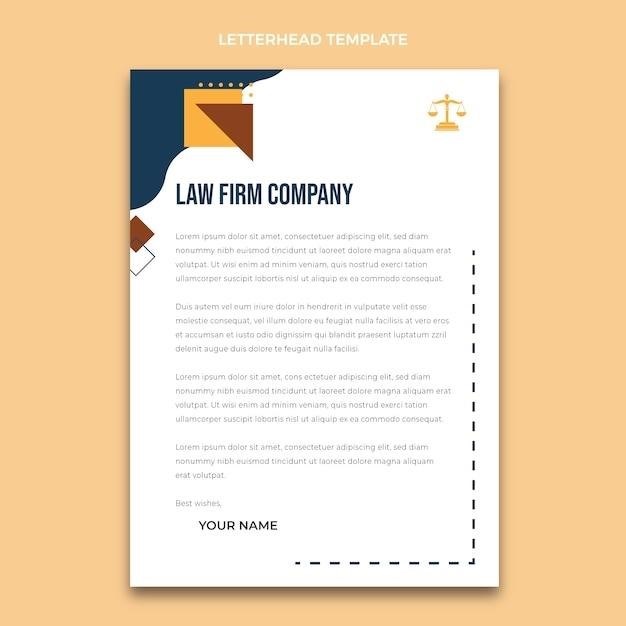Government Contract Proposal Sample PDF⁚ A Comprehensive Guide
This comprehensive guide will walk you through the process of creating a winning government contract proposal‚ complete with sample documents and resources to help you succeed. Whether you’re a seasoned contractor or just starting out‚ this guide will provide you with the tools and knowledge you need to navigate the complex world of government contracting.
Understanding Government Contracts
Government contracts are legally binding agreements between a government agency and a private company or individual to provide goods‚ services‚ or construction. These contracts are governed by a complex set of rules and regulations designed to ensure fairness‚ transparency‚ and accountability in the procurement process. Understanding the nuances of government contracts is crucial for any organization seeking to secure funding from public entities.
Types of Government Contracts
Government contracts come in various forms‚ each with its own unique characteristics and legal implications. Some common types include fixed-price contracts‚ cost-reimbursable contracts‚ time-and-materials contracts‚ and indefinite delivery‚ indefinite quantity (IDIQ) contracts. The type of contract selected depends on the complexity of the project‚ the level of uncertainty involved‚ and the risk tolerance of both the government agency and the contractor.

The Proposal Process
The process of submitting a government contract proposal typically begins with a Request for Proposal (RFP) issued by the government agency. The RFP outlines the project scope‚ requirements‚ evaluation criteria‚ and submission deadlines. Contractors carefully review the RFP and develop a comprehensive proposal that addresses all the requirements. This process often involves extensive research‚ collaboration‚ and internal review before the final proposal is submitted.
Essential Components of a Proposal

A well-structured government contract proposal typically includes several key components that demonstrate the contractor’s understanding of the project‚ their capabilities‚ and their proposed approach. These components often include an executive summary‚ a detailed technical approach‚ a comprehensive management plan‚ and a cost proposal. Each section plays a crucial role in conveying the contractor’s value proposition and convincing the government agency to award the contract.
Executive Summary
The executive summary serves as a concise overview of your proposal‚ highlighting the key elements of your solution and its alignment with the government’s needs. It should be engaging and persuasive‚ capturing the reader’s attention and providing a clear understanding of your proposed approach‚ key deliverables‚ and anticipated benefits. A strong executive summary sets the stage for the rest of your proposal and can significantly impact the decision-making process.
Technical Approach
This section delves into the specific technical details of your proposed solution‚ outlining the methodologies‚ tools‚ and technologies you will employ to fulfill the requirements outlined in the RFP. Clearly articulate your understanding of the project’s technical complexities‚ demonstrating your ability to deliver a robust and effective solution. Highlight any unique technical capabilities or innovations you bring to the table‚ showcasing your expertise and differentiating your proposal from competitors.
Management Plan
A well-structured management plan demonstrates your ability to effectively manage the project‚ ensuring its successful completion on time and within budget. Outline your project management methodology‚ including key roles and responsibilities‚ communication protocols‚ and reporting mechanisms. Detail your quality assurance procedures‚ risk management strategies‚ and plans for addressing potential challenges. This section showcases your commitment to delivering a high-quality outcome‚ fostering confidence in your ability to manage a complex government contract.
Cost Proposal
The cost proposal is a critical component of your government contract proposal‚ as it outlines the financial details of your project. This section should be clear‚ concise‚ and detailed‚ providing a comprehensive breakdown of all costs associated with the project. Include labor costs‚ materials‚ equipment‚ travel expenses‚ and any other relevant expenses. Be sure to adhere to the specific cost guidelines outlined in the RFP‚ and justify your pricing decisions with supporting documentation. A well-presented cost proposal demonstrates your financial acumen and commitment to providing a cost-effective solution.
Writing a Winning Proposal
Crafting a winning government contract proposal requires a strategic approach that goes beyond simply meeting the RFP requirements. You need to demonstrate your understanding of the government’s needs‚ highlight your unique capabilities‚ and showcase the value you bring to the project. Think of your proposal as a compelling story that persuades the government agency that you are the best choice for the job. By focusing on clear communication‚ persuasive arguments‚ and a strong emphasis on results‚ you can increase your chances of securing the contract.
Tailoring Your Proposal to the RFP
The RFP (Request for Proposal) is your roadmap to a successful proposal. It outlines the government’s specific needs‚ requirements‚ and evaluation criteria. Carefully analyze the RFP and tailor your proposal to address each point directly. Demonstrate your understanding of the government’s objectives and how your solution aligns with their vision. Avoid generic statements and focus on concrete examples that showcase your relevant experience and capabilities.
Demonstrating Expertise and Experience
Government agencies prioritize experience and expertise. Showcase your company’s track record by providing specific examples of successful projects similar to the one outlined in the RFP. Highlight relevant certifications‚ accreditations‚ and industry awards. Include testimonials from satisfied clients‚ especially those in the public sector. Demonstrate your team’s qualifications and expertise by detailing their relevant skills‚ education‚ and experience.
Highlighting Value and Benefits
Go beyond simply stating your capabilities; articulate how your proposed solution will deliver specific benefits to the government agency. Quantify the value you offer by outlining cost savings‚ improved efficiency‚ increased revenue‚ or other tangible outcomes. Clearly demonstrate how your approach aligns with the agency’s goals and objectives‚ addressing their specific needs and priorities. Use compelling language to highlight the positive impact your project will have on the agency and the public it serves.
Formatting and Presentation
A well-formatted proposal makes a strong first impression. Adhere to the specified formatting guidelines outlined in the RFP‚ paying close attention to font styles‚ margins‚ and page numbering. Use clear and concise language‚ avoiding jargon or technical terms that may not be understood by the evaluation team. Employ visual aids such as charts‚ graphs‚ and images to enhance the readability and appeal of your proposal. A visually engaging proposal can help capture the attention of the reviewers and convey your message effectively.
Proposal Template and Style
A well-structured proposal template provides a clear and consistent framework for your proposal. It ensures all essential components are included and presented in a logical order. Utilize a professional and consistent style throughout the proposal‚ maintaining a formal tone and adhering to grammatical rules. Use a clear and readable font‚ such as Arial or Times New Roman‚ and choose a font size that is easy on the eyes. A clean and professional template will enhance the credibility of your proposal and make it easier for the reviewers to absorb the information.
Visual Aids and Graphics
Visual aids and graphics can significantly enhance your proposal’s impact. Use charts‚ graphs‚ and diagrams to illustrate key data points‚ demonstrate complex processes‚ and showcase your team’s experience. Ensure that visuals are clear‚ relevant‚ and easy to understand. They should complement the text and not distract from the core message. Avoid using excessive graphics or overly complex visuals‚ as they can overwhelm the reader and make the proposal appear cluttered.
Proofreading and Editing
Before submitting your proposal‚ dedicate ample time to thorough proofreading and editing. Carefully review the document for grammar‚ spelling‚ and punctuation errors. Ensure that the language is clear‚ concise‚ and consistent. Consider asking a colleague or professional editor to provide a fresh perspective and identify any potential issues. A polished and error-free proposal demonstrates professionalism and attention to detail‚ signaling to the government agency that you take the process seriously and are capable of delivering high-quality work.
Sample Proposal Documents
To provide concrete examples and inspiration‚ we’ve included sample proposal documents for your reference. These examples cover various aspects of government contracting‚ such as a comprehensive government contract proposal template‚ a detailed RFP response template‚ and a sample budget pro forma. These documents offer valuable insights into the structure‚ content‚ and formatting of successful proposals‚ allowing you to tailor your own proposals with confidence and clarity. Use these resources to understand the essential elements of a winning proposal and develop your own compelling and persuasive documents.
Government Contract Proposal Example
This section provides a real-world example of a government contract proposal‚ showcasing a practical application of the principles discussed throughout this guide. The example highlights the key elements of a successful proposal‚ including a clear and concise executive summary‚ a detailed technical approach outlining the proposed solution‚ a comprehensive management plan addressing project execution‚ and a transparent cost proposal. By studying this example‚ you can gain valuable insights into the structure and content of a winning proposal‚ understanding how to effectively communicate your value proposition and demonstrate your capabilities to government agencies.
RFP Response Template
This section offers a ready-to-use RFP response template designed to simplify the proposal development process. The template provides a structured framework for organizing your response‚ ensuring you address all essential aspects of the RFP. It includes sections for outlining your understanding of the requirements‚ presenting your proposed solution‚ detailing your qualifications and experience‚ and providing a comprehensive cost breakdown. By utilizing this template‚ you can streamline your proposal writing process‚ ensuring a consistent and professional presentation of your bid.
Resources and Support
Navigating the world of government contracting can be challenging‚ but there are numerous resources available to support your journey. This section provides a directory of valuable websites‚ services‚ and associations dedicated to assisting businesses in securing government contracts. You’ll find information on government contracting regulations‚ proposal writing guidance‚ funding opportunities‚ and industry best practices. These resources can equip you with the knowledge and tools necessary to confidently pursue and win government contracts.
Government Contracting Websites
The digital landscape offers a wealth of information and resources specifically tailored for government contractors. Several websites provide comprehensive insights into government contracting opportunities‚ regulations‚ and best practices. These platforms act as valuable hubs‚ connecting businesses with government agencies‚ facilitating access to bid opportunities‚ and offering guidance on proposal development and submission. By leveraging these dedicated resources‚ you can gain a competitive edge in the government contracting arena.
Proposal Writing Services
For those seeking expert assistance in crafting compelling and persuasive government contract proposals‚ proposal writing services offer invaluable support. These specialized firms possess deep knowledge of government contracting regulations‚ proposal evaluation criteria‚ and effective writing techniques. They provide a range of services‚ including proposal development‚ editing‚ and review‚ ensuring your proposal meets the highest standards of quality and professionalism. Engaging a proposal writing service can significantly enhance your chances of securing government contracts‚ particularly for complex or highly competitive bids.
Industry Associations
Industry associations play a vital role in supporting government contractors by providing a platform for networking‚ knowledge sharing‚ and advocacy; These associations often offer specialized resources and training programs tailored to the unique challenges of government contracting. They can connect you with other professionals in your field‚ provide insights into upcoming government opportunities‚ and advocate for policies that benefit the contracting community. By joining relevant industry associations‚ you can gain access to valuable resources‚ build relationships‚ and stay ahead of the curve in the ever-evolving landscape of government contracting.






